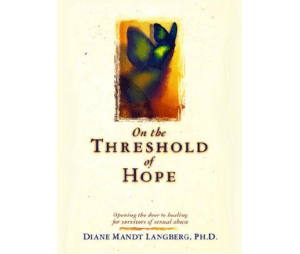 family
family
INFORMATION TO SUPPORT FAMILY
 family
family
INFORMATION TO SUPPORT FAMILY
The friends and family of survivors deal with the effects of abuse and often experience them directly. You may be part of the inner circle of support and are looking for information about abuse and prevention, but you also may desire help for yourself. We hope this website will help you understand and respond to the physical, emotional, and spiritual impact of abuse and neglect. We urge you to seek counseling for yourself, as well. We are willing to assist by answering any spiritual questions you may have or to help you find a professional who can help.
If you have any questions, please contact us.
Call 911 if you or someone you know is in crisis and needs immediate assistance.
Additional resources include:

Our website includes a number of resources for parents and churches to use in teaching personal safety to their children and in developing church policies that limit the possibility a child may be abused inside the faith community.
If your neighbor stole your car, you would report him to the police. Your abuser stole something from you much more valuable than a car. He stole a part of your very life and self from you. In doing so that person committed a crime and needs to suffer the consequences of his or her actions. It is not unforgiving or unchristian to report such a person. In fact, it is wise to do so. It forces the person to deal with the reality of what he or she did. It also reduces the likelihood that the person will abuse others in the future.
God established the church to help us forgive. He established the government to provide temporal justice and curb lawlessness in society. As Christians we enjoy the benefit of both realms.
Many survivors worry that God will condemn them if they cannot forgive the person that abused them. For example, one man said that he couldn’t forgive his father for torturing him repeatedly and was worried his soul was in jeopardy. If you are a Christian struggling with forgiveness, it is important to remember that you are not God. Accordingly, you will never be able to forgive or perform other works in the way God can. The scriptures make clear that only unbelief sets us apart from God (John 3:16).
In commenting on the obligation in the Lord’s Prayer to forgive others, Martin Luther said the devil lies to us when he says “You must forgive or you will not be forgiven; you have not forgiven; therefore despair.” Luther simply retorted that through faith we will want to forgive but may not forgive fully this side of heaven.
If the ministry my child attends conducts a criminal background check on workers and volunteers, is that enough to make sure my children are safe?
Most predators do not have a criminal history and often have many victims before they are apprehended. It is important that the ministry has good abuse prevention policies and trains its staff to recognize abuse as well as conduct background checks.
While abuse by a juvenile can impact a child emotionally, physically and spiritually, the process of dealing with a juvenile abuser and the outcome of that different process can be quite different. Ministry leaders and the families they serve should familiarize themselves with the issues and access quality resources and expertise to determine what kind of intervention is required. We recommend reading “Recognizing and Responding to Developmentally Appropriate and Inappropriate Sexual Behaviors of Children,” by Victor I. Vieth. Currents in Theology and Mission 45:3, pages 50-55 (July 2018)
The National Center for Missing & Exploited Children has a 24 hour hotline if you believe you have seen a missing child or encounter sexually exploitive images. NCMEC also has resources that parents, churches and schools can use in teaching children online safety.
Visit our FFTC counselors page for resources that may help in finding a counselor.
Lutheran Church Missouri Synod Child Abuse Resources. This website, created by a Missouri Synod (LCMS) Task Force on child abuse, contains articles, prayers, coloring books and other resources that may help churches and families in responding to the sin of child abuse.
Prevent Child Abuse America is the nation’s oldest and largest organization committed to preventing child abuse and neglect before it happens. They promote programs and resources families; churches and communities prevent child abuse and neglect.
Act Against Violence (ACT) Raising Safe Kids Program is designed to help parents raise healthy children and to reduce the risk of physical or emotional abuse. The program was developed by the American Psychological Association and its effectiveness is supported by research.
The American Academy of Pediatrics: Evaluation Sexual Behaviors in Children. Parents, clergy, teachers, and others may struggle with discerning a child’s sexual behaviors. This article helps sort out normal and abnormal sexual behaviors in children and offers guidance when professional assistance is necessary.
The Matty Eappen Foundation has resources to help prevent abusive head trauma in infants, which is commonly called Shaken Baby Syndrome. The foundation also has a grant program to assist families impacted by this form of child abuse.
Informational brochures and counselor information to help Christians make informed choices as they choose a mental health provider when suffering from abuse or addiction.
Standing Up for Children: A Christian Response to Child Abuse and Neglect. All churches and schools need to be safe places where leaders actively work to prevent abuse. Freedom for the Captives (FFTC) offers online training videos taught by experts Mr. Victor Vieth, director of education and research at Zero Abuse Project and Prof. John Schuetze, a seminary professor and counselor. To learn more, check our training webpage. To request the training for yourself or your group, please complete our online learning registration form.
Zero Abuse Project has a number of resources for parents, schools and churches in teaching children personal safety.
The Search Institute has developed tools for parents and schools to use in teaching children perseverance and resilience, including a connection to faith.